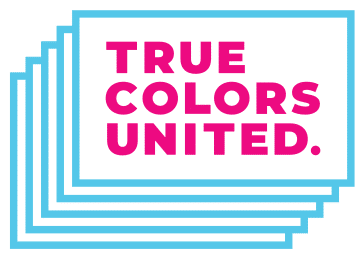
We’re excited and proud to announce the release of At the Intersections: a new in-depth look into homelessness among lesbian, gay, bisexual, transgender, and queer/questioning (LGBTQ) youth. This resource is comprehensive guide for advocates, policy makers, service providers, and funders working to end LGBTQ youth homelessness. Led by the True Colors Fund and National LGBTQ Task Force, the first-of-its-kind online publication highlights innovative approaches to supporting youth experiencing homelessness, provides case studies of replicable and successful models, and offers concrete solutions to ending homelessness among LGBTQ youth.
“Close to 40 percent of youth that experience homelessness identify as LGBTQ,” said Meghan Maury, National LGBTQ Task Force’s Criminal and Economic Justice Project Director. “There are many factors that contribute to LGBTQ youth homelessness, including family rejection, abuse, aging out of foster care, economic hardship, bullying and school harassment. This guide calls for a nuanced understanding in order to inform the creation of effective systems and programs that will meet the needs of the diverse population of LGBTQ young people experiencing homelessness.”
On average, youth experience homelessness for the first time at age 15 and report being on the streets for nearly two years. Once out of their homes, LGBTQ youth suffer higher rates of physical and sexual assault than non-LGBTQ youth experiencing homelessness. In order to survive, 28 percent of LGBTQ youth experiencing homelessness report trading sex for basic needs such as food, clothing, and shelter. Additionally, LGBTQ youth are twice as likely as non-LGBTQ youth to attempt suicide.
“The needs and wants of each young person who is experiencing homelessness differ greatly,” said Christa Price, Program Officer at the True Colors Fund. “In some cities, there may be a relatively large amount of shelter space for young people, but significant gaps in access to physical and mental health care. In other cities there may be a more robust system of care, but a higher likelihood of justice system involvement. ‘At the Intersections’ gives providers a framework on how to respond to the individual needs of young people and the systemic gaps they have identified locally.”
The new online resource also examines the relationship between racism and LGBTQ youth homelessness, the impact of immigration on LGBTQ young people, and the systemic barriers faced by transgender and gender expansive youth experiencing homelessness.
“In order to truly eradicate youth homelessness, it’s important that we understand and address the complexities that precipitate it. By focusing on young people in their environments, and understanding the diverse identities that influence their experiences, as this resource does; stakeholders are better equipped to holistically address the determents that too often push young people onto the streets,” said Kristopher Sharp, a 2015 True Fellow.
To learn more about the guide and read online please visit: www.attheintersections.org.
